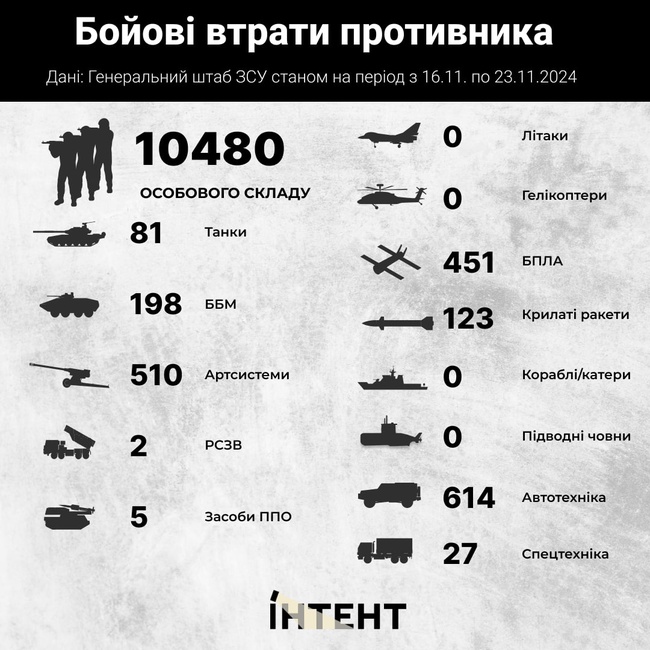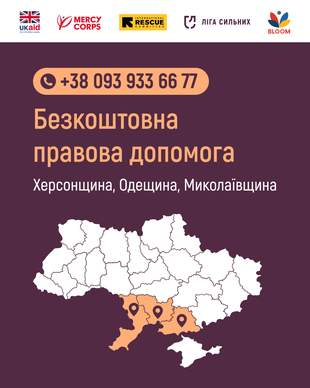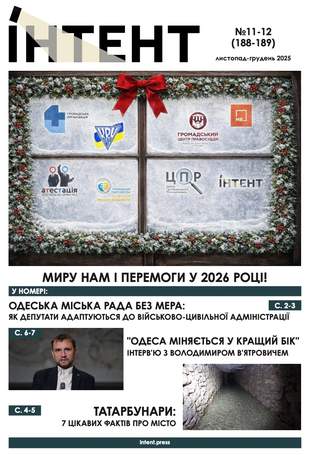Меню
Соціальні мережі
Розділи
Nov. 23, 2024, 7:36 p.m.
Blackout and deaths in Odesa: highlights of the week
This article also available in English307
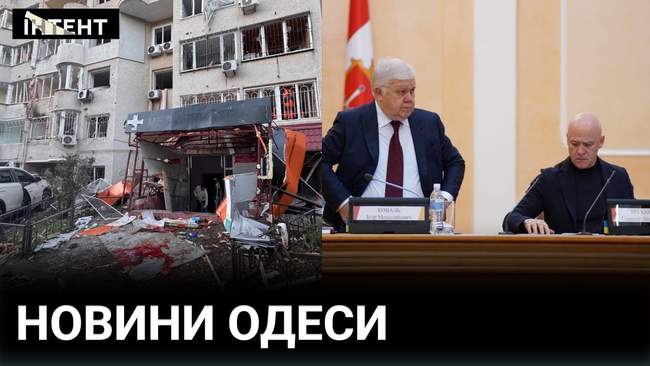
Photo collage: Intent
Odesa was left without water, electricity, heat and working electric transport due to Russian shelling at the beginning of the week, and while water supply was restored on the same day, heat and electricity took longer to be restored, and emergency shutdowns lasted for almost half the week.
But the shelling was not the only event of the week.
Changes to Odesa's budget and payments to victims of shelling
UNESCO about the damaged monuments and defenders of Pushkin monuments
Actor Mashkov was sentenced to 10 years and deprived of his apartment in Odesa
Another blackout
On Sunday, November 17, the Russian military attacked energy system facilities throughout the country with missiles. President of Ukraine Volodymyr Zelenskyy said that Russian terrorists used various types of drones, including Shakedowns, that night and in the morning. Cruise, ballistic and aerial missiles: "Zircon, Iskander, Daggers. A total of about 120 missiles and 90 drones. Air defense forces destroyed more than 140 air targets. As it turned out later, the energy sector of Odesa region suffered the most.
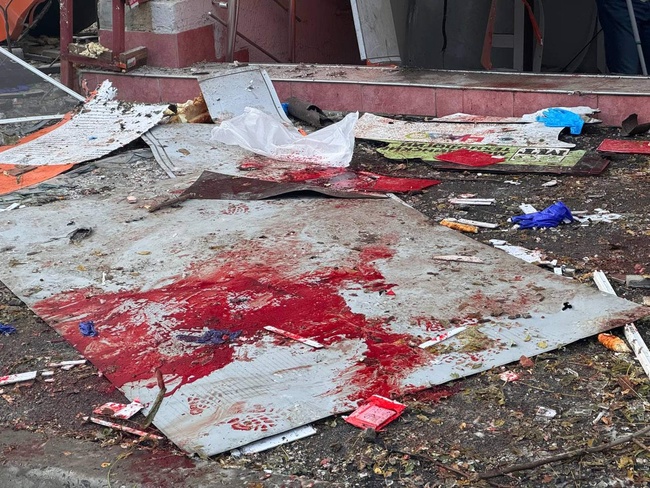
Photo: Oleh Kiper/Odesa Regional State Administration
The Commission on Technogenic and Environmental Safety and Emergency Situations of the Odesa Regional State Administration declared October 18 and 19 as days off for schools and kindergartens in Odesa.
On the afternoon of November 18, Odesa was again attacked by a missile, according to the command of the Ukrainian Air Force, the enemy attacked Odesa with an Iskander-M ballistic missile, which was shot down by air defense. The downed enemy missile landed in the residential sector of the city's Prymorsky district. The death toll from the missile strike on the afternoon of November 18 in Odesa reached 10 people, including seven police officers, a medic, and two local residents. Later, another victim died in the hospital. In connection with the deaths of 10 people, a day of mourning was declared in Odesa and the region on November 19. In the evening, a group of residents of houses on Dalnytska Street in Odesa staged a protest, restricting the movement of cars due to the lack of electricity for almost two days.
Also on the same day, the head of the Odesa State Administration, Oleh Kiper, commenting on the situation with the power supply in the region, said that the region had asked for help from Transnistria, but when Intent decided to find out the details, the publication was told that the OVA had not asked, but that the power company had done it directly. It was not possible to find out who exactly contacted whom, as Ukrenergo, the only company authorized by the energy sector, refused to comment on the situation. However, as energy manager Vitaliy Savych told Intent.Insight, Transnistria could not have helped Odesa region.
It was only on November 20 that the electricity distribution operator DTEK Odesa Power Grids introduced schedules to stabilize blackouts in Odesa after three days of emergency and blackouts. Only on November 21 did the city's electric transport resume operation.
Changes to the Odesa budget and payments to victims of shelling
An extraordinary session of the Odesa City Council was held on the morning of November 22. The main issues were changes to the budget. In particular, the agenda includes key issues related to amendments to city programs and the budget. In particular, the deputies supported funding for the repair of buildings that were damaged as a result of Russian attacks.
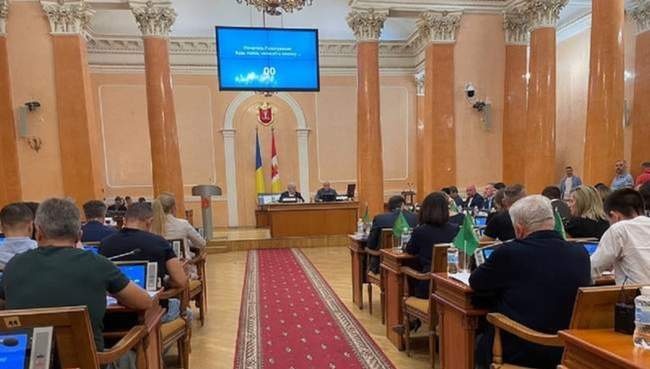
Photo: Intent/Natalia Dovbysh
According to the city council, 192 buildings in Odesa were damaged by Russian shelling in November. Among them are 98 multi-storey buildings and 94 private houses. In total, about 2,500 windows were broken.
The deputies made changes to the "Unbreakable City" program and approved the allocation of UAH 30 million from the city budget.
Earlier, members of the commission on education, sports and interaction with public organizations agreed to increase spending on repairs to educational institutions affected by Russian shelling.
Also, Odesa Mayor Gennadiy Trukhanov determined the amount of targeted financial assistance to the victims and families of those killed as a result of the armed aggression of the Russian Federation against Ukraine in the city of Odesa.
It was decided to provide targeted financial assistance to the affected persons depending on the severity of their injuries (subject to inpatient treatment):
- medium condition - UAH 50 thousand per person;
- severe condition - UAH 70 thousand per person;
- very serious condition - UAH 100 thousand per person.
The families of the victims will be paid 100 thousand hryvnias per family member.
Odesa deputies also adopted an appeal to the Cabinet of Ministers calling for the introduction of a compensation mechanism for damaged housing for citizens who do not have title documents for real estate. As explained at the session, the shelling of Odesa affected houses located along the railroad. They were built in the Soviet era. Their residents have documents for connection to utility networks and registered residence, but the lack of ownership of housing deprives them of the opportunity to participate in the eRestoration program.
UNESCO about the affected monuments and defenders of Pushkin monuments
Meanwhile, just before the shelling, a UNESCO mission visited Odesa. Representatives of the United Nations Educational, Scientific and Cultural Organization were interested in assessing the damage caused to the monuments by the shelling on November 14.
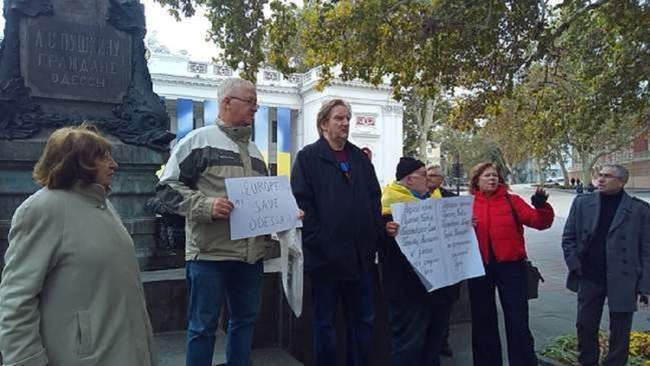
Photo: Mykhailo Golubev/Facebook
The organization sent a mission of experts to the site on November 16, and later published a letter of appeal. UNESCO called for an end to all attacks on cultural property, which is protected by widely ratified international normative documents.
The network also published a letter from UNESCO addressed to opponents of the dismantling of monuments to Russian and Soviet figures in Odesa. The organization announced its intention to monitor the situation and facilitate a dialogue between parties with different views on the issue.
In its response, UNESCO confirmed that, in accordance with international regulations, the organization is "committed to promoting dialogue and participation of all stakeholders as an essential means of decision-making in the field of culture" and promised to enter into a dialogue with the relevant authorities in Ukraine on this issue. in accordance with the World Heritage Convention" and as part of the annual monitoring of World Heritage sites.
Actor Mashkov was sentenced to 10 years and deprived of his apartment in Odesa
The Security Service of Ukraine has announced the confiscation of a 147-square-meter apartment in Odesa from Russian actor Vladimir Mashkov, who played the lead role in the TV series Liquidation.
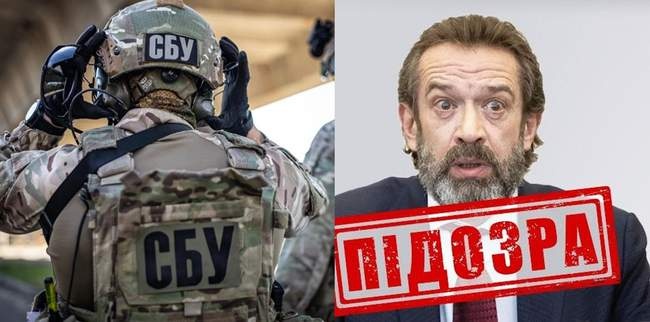
Photo collage: Intent
Since the offender is hiding in Russia, the trial was held in a special court proceeding in absentia (in the absence of the accused).
Volodymyr Mashkov is a member of the Kremlin's propaganda pool and often speaks at mass rallies in support of a full-scale war against Ukraine.
Based on the evidence collected by the SBU investigators, the court found Vladimir Mashkov guilty under two articles of the Criminal Code of Ukraine
- Article 210, part 2 (encroachment on the territorial integrity and inviolability of Ukraine)
- Article 436 (propaganda of war).
Corruption to avoid military service
Throughout the week, law enforcement officers repeatedly reported exposing corrupt officials who were looking for clients among conscripts seeking to evade mobilization.
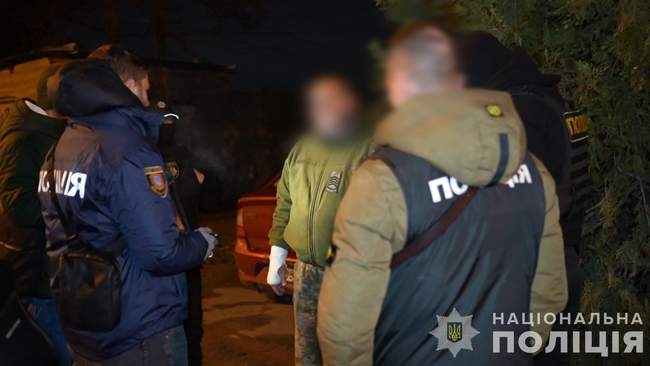
Photo: National Police in Odesa region
On November 16, a Kharkiv law enforcement officer was detained in Odesa on suspicion of organizing the escape of conscripts abroad. The law enforcement officer from Kharkiv developed a scheme for men to escape abroad for 7.5 thousand US dollars. The plan was that he would buy train tickets to Odesa, book a hotel, and then, with instructions and recommendations, his client would cross the state border of Ukraine on foot in the direction of the Republic of Moldova.
Before the trip, he informed him that he had to pay USD 2,000 as an advance payment. On November 16, the dealer and his next client checked into a hotel in Odesa, where the Kharkiv resident received the second tranche of USD 5,500.
On November 19, officers of the Security Service of Ukraine and the National Police reported the detention in Odesa of two heads of city hospital departments and the secretary of the head of the local medical and social expert commission. They allegedly involved four unemployed people who were looking for potential clients in illegal activities. For him to cross the border, they prepared the necessary package of medical documents for his wife to obtain a Group II disability certificate. This service cost the man 4.5 thousand US dollars.
The head of one of the departments of the Children's City Clinical Hospital No. 3 in Odesa was caught taking bribes. According to the prosecutor's office, these documents could have helped the man avoid being summoned to the military commissariat and ensure his free movement around the city. The woman was detained immediately after receiving $400 for the forgery.
In Odesa, two officials of the TCC and JV were exposed for turning service into a source of income. They offered one of the persons liable for military service to "renew" a temporary certificate with a deferment from service for 1,300 USD. The officials hinted that in case of refusal, it would be impossible to obtain the document legally. Instead, the consent opened up the possibility of taking advantage of a "discount" to further extend the deferral.
Enemy losses in a week
